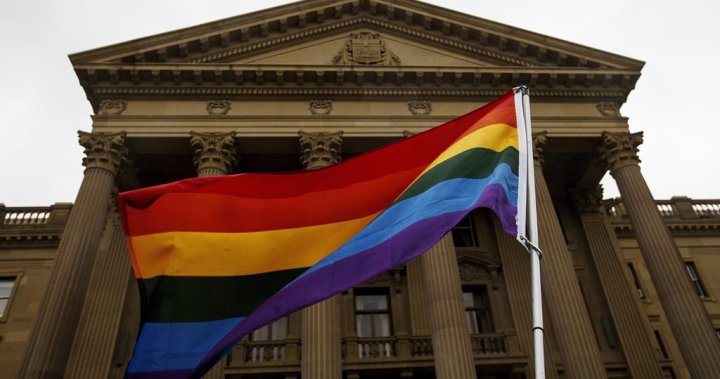On Wednesday, Alberta Premier Danielle Smith announced a suite of policies that target trans Albertans in multiple areas of life, including seeking medical treatments, participating in athletics, and whether one can use preferred pronouns and names in school.
The policies mirror similar ones enacted south of the border, described as supporting so-called “parents rights.”
“Up until the time when children are able to make their own decisions about things like education and health-care treatments, parents do retain decision making responsibility for their children,” Jennifer Koshan, law professor at the University of Calgary, said.
“But at the age when a child does have the capacity to be able to make their own decisions, with full understanding of what the implications of those decisions are, then it’s up to the child to make the decision.”
That’s known as the common law doctrine of the “mature minor.”
Koshan noted there’s no set age, no “bright lines” at which a child can be considered a mature minor, and is instead identified on a case-by-case basis depending on the minor’s maturity, understanding of the decision and the context of the decision.

Advice from Alberta Health Services to their practitioners says “a mature minor may provide informed consent to accept or refuse the treatment/procedure(s)” and that a mature minor’s legal representative cannot override the decision. Guidance from the College of Alberta Psychologists suggests a minor would not likely be considered a mature minor before 15 years old.
Get the latest National news.
Sent to your email, every day.
“One of the problems that I have with this announcement is that the government is trying to create these bright lines, and that’s not the way our law currently works,” the law professor said.
Koshan also noted there’s no current laws on the books around the age at which a minor can decide to access birth control.
“We don’t need to have the involvement of the courts at all. It’s only where the parents might know about the child’s medical decision and they disagree with the child’s medical decision that we might get into the sort of conflict where the law may need to step in,” she said, noting decisions around medical procedures necessarily involve medical professionals who are bound by ethical obligations.
Family violence possible with pronoun policy
One area Alberta’s new policies match similar policies in Saskatchewan and New Brunswick is in use of names and pronouns in schools.
In Alberta, parents must consent to the change of name or pronoun in school for a child aged 15 or younger. At 16 or 17, parents must only be notified of the change.
A legal challenge in Saskatchewan resulted in the court recognizing the parental notification and consent policies would result in harms for those children, via increased risk of suicide, substance abuse, and even discrimination as its own harms, Koshan said.
“In the family context, a child could potentially be subject to violence at the hands of their parents, and that violence can take different forms. It could be physical, it could be emotional or psychological,” Koshan said. “There’s recognition at law now that something like misgendering constitutes harm in and of itself and may constitute family violence. The premier recognized there could likely be a “handful of rare situations where one or both of the parents reject or become abusive to a child who identifies as transgender, we have child protection laws that will be strictly enforced.”
“We encourage all teachers, parents, classmates and youth volunteers to be on the watch for any instances of bullying of youth or children for any reason, so adults can assist with putting a stop to it the moment it is detected,” Smith said.
Koshan said solely relying on child protection laws to protect trans kids is inadequate.
“Child protection legislation requires people to report the harm to the authorities. And what that means (is) a child may be put in a situation where they have to report their own parents to child protection authorities,” she said.
Alberta’s Protection Against Family Violence Act lacks an explicit definition that includes deliberate harms like misgendering.
“But I think the argument can be made that it comes within the category of emotional or psychological abuse, if it’s something that is either intentional or ongoing,” Koshan said. “Our Family Law Act also recognizes family violence as a factor that’s relevant to the best interests of children.”
All of these potential harms could be dealt with in the policy, Koshan said.
“If the premier recognizes that this policy may result in harm, that needs to be addressed in the policy itself, including through deciding not to implement the policy. Because if it’s going to result in harm, that means that children’s rights are engaged, and it’s really something that the province should not be doing.”
© 2024 Global News, a division of Corus Entertainment Inc.





